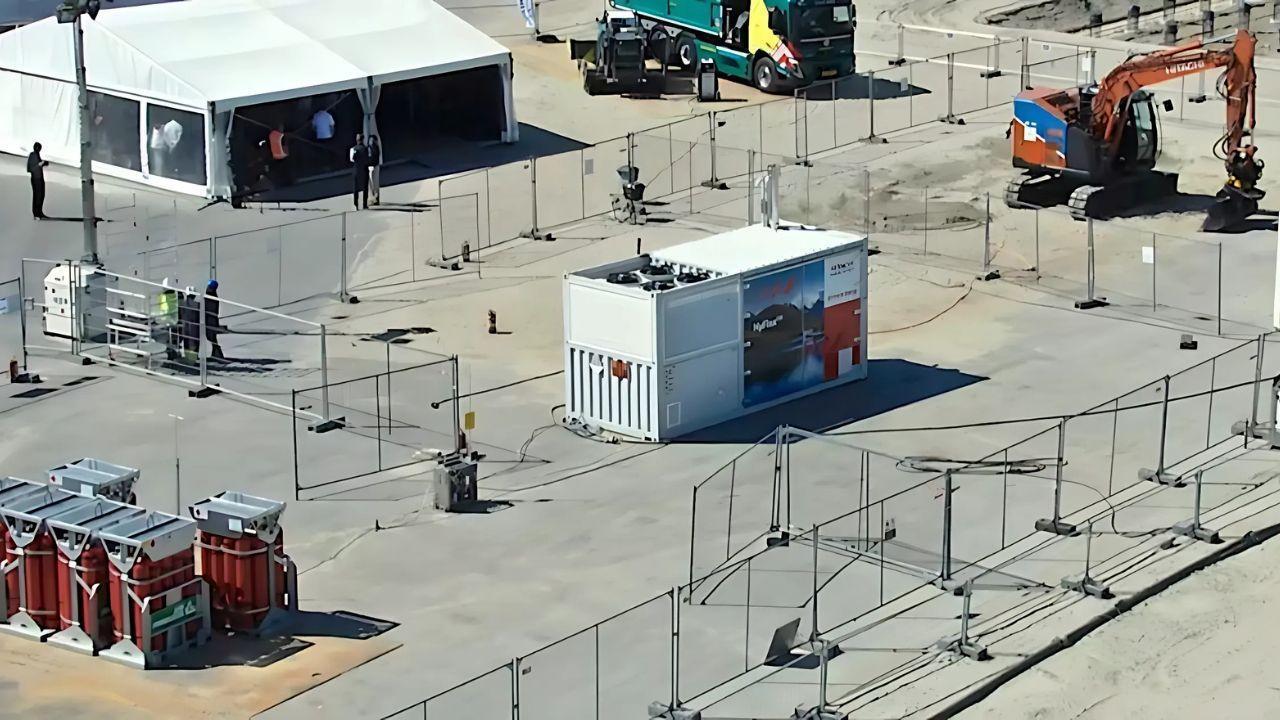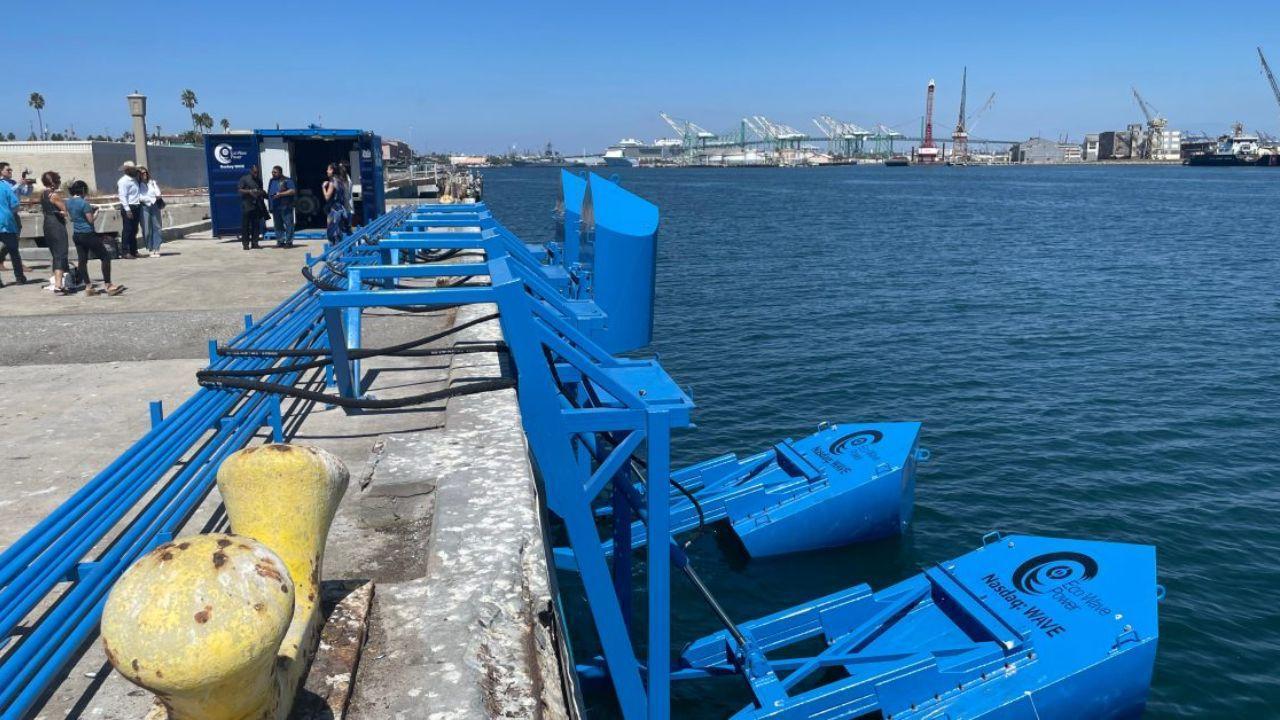
Post by : Amit
State’s Push Towards a Greener Future
In a decisive move to accelerate the adoption of electric vehicles (EVs), the state of Colorado has announced a $5 million investment aimed at expanding EV charging infrastructure across its cities, towns, and rural communities. The initiative is part of Colorado’s broader commitment to achieve significant reductions in greenhouse gas emissions and meet its ambitious target of 940,000 EVs on the road by 2030. This funding marks one of the state’s most significant direct allocations for EV infrastructure in recent years, signaling a shift towards prioritizing clean transportation in policy and investment decisions.
Colorado Governor Jared Polis, who has consistently emphasized clean energy goals, stated that the expansion of charging stations is essential not only for environmental sustainability but also for ensuring that all Coloradans—regardless of location—can confidently make the switch to EVs. “We are building the charging network of the future,” he remarked, “and ensuring that everyone, from Denver to our smallest mountain towns, can benefit from cleaner, cheaper, and more reliable transportation.”
Bridging the Accessibility Gap
One of the major challenges in EV adoption across the United States has been the uneven distribution of charging infrastructure. Urban areas often have relatively better coverage, while rural communities remain underserved. Colorado’s $5 million plan specifically addresses this issue by funding charging stations in strategically chosen locations to fill these geographic gaps.
The initiative will prioritize high-traffic corridors, public parking areas, tourist destinations, and underserved neighborhoods. The state government has identified that without a more balanced distribution of chargers, potential EV buyers in rural and suburban areas could be discouraged from making the transition due to range anxiety—the fear that their vehicle will run out of battery before they can reach a charger.
Public-Private Partnerships at the Core
Colorado’s Department of Transportation (CDOT) and the Colorado Energy Office (CEO) will jointly oversee the implementation of the program, working closely with private charging network operators and utility companies. The state plans to leverage these partnerships to maximize the impact of the $5 million fund.
According to the CEO, the model will follow a co-investment approach—where private entities match state funds to install, operate, and maintain the chargers. This ensures that the financial responsibility does not fall solely on taxpayers and that private partners have a vested interest in keeping the charging stations operational and reliable over the long term.
Technology and Charging Speeds
The expansion project will not be limited to basic Level 2 chargers; it will also include Direct Current Fast Chargers (DCFCs) that can recharge most EV batteries to 80% in under 30 minutes. The inclusion of fast-charging options is crucial for enabling long-distance travel and supporting commercial fleets that cannot afford long downtime during recharging.
State officials have stressed that all new charging stations will be compatible with multiple EV models and will adhere to the latest interoperability and payment standards. This ensures that drivers can easily locate, access, and pay for charging services without being locked into proprietary networks.
Environmental and Economic Benefits
The environmental benefits of EV adoption are clear: fewer tailpipe emissions, reduced dependency on fossil fuels, and improved air quality—especially in densely populated areas. But Colorado’s investment also has economic development implications. Expanding EV infrastructure can attract green-tech companies, support local jobs in construction and maintenance, and stimulate tourism by making EV travel more convenient for out-of-state visitors.
Analysts point out that as EV adoption rises, electric utilities stand to benefit as well. Increased electricity demand from transportation can improve grid efficiency and justify investments in renewable energy generation, further aligning with Colorado’s renewable portfolio standard.
Aligning with Federal Support
Colorado’s $5 million investment comes at a time when the U.S. federal government is also pouring billions into EV charging infrastructure through the Bipartisan Infrastructure Law. The National Electric Vehicle Infrastructure (NEVI) program is expected to complement Colorado’s efforts by funding additional charging corridors across the state.
By aligning state investments with federal programs, Colorado can maximize its coverage and ensure its charging infrastructure meets both state and national standards for connectivity and reliability.
Addressing Potential Challenges
While the investment is a step in the right direction, challenges remain. Installing chargers in rural and mountainous regions can be expensive due to terrain difficulties and limited grid access. Additionally, maintenance costs can be higher in areas with extreme weather conditions.
Colorado is exploring solutions such as solar-powered charging stations and battery storage systems that can function independently of the grid, which would make rural charging more feasible. There is also a push to integrate chargers into multi-use public facilities—such as libraries, community centers, and government offices—to reduce installation and operational costs.
Stakeholder Reactions
The announcement has been met with broad support from both environmental advocates and the EV industry. The Colorado Electric Vehicle Association praised the initiative, calling it “a bold move that sets an example for other states to follow.” Private charging companies have expressed interest in partnering with the state to deploy the new infrastructure, while local municipalities see the project as a potential driver for economic activity and tourism.
However, some critics argue that $5 million, while substantial, is still a drop in the bucket compared to what is needed to achieve full statewide EV readiness by 2030. They point to states like California, which have invested hundreds of millions into similar programs, and suggest that Colorado will need to sustain and scale up its funding to keep pace with EV growth.
Long-Term Vision
The $5 million allocation is part of Colorado’s Transportation Electrification Plan, which outlines the steps needed to meet its EV targets. Beyond simply installing chargers, the plan includes educational campaigns, fleet electrification incentives, and grid modernization efforts to accommodate increased electricity demand.
The state is also looking ahead to the possibility of bidirectional charging technology, which allows EVs to feed energy back into the grid during peak demand, effectively turning cars into mobile energy storage units. Such innovations could further enhance the resilience and sustainability of Colorado’s energy ecosystem.
Impact on Consumers
For Colorado residents, this expansion means greater convenience and confidence in making the switch to EVs. With chargers located in more accessible and diverse locations, the fear of running out of battery mid-journey will be significantly reduced. Moreover, the mix of Level 2 and DC fast chargers will cater to both daily commuters and long-distance travelers.
The project is expected to begin rolling out within the next year, with the first new charging stations operational by late 2026. Once complete, Colorado’s EV charging network will be one of the most comprehensive in the Mountain West region.
Driving Forward into a Sustainable Future
Colorado’s $5 million investment in EV charging infrastructure is more than just a budget line—it is a statement of intent. By addressing both urban and rural charging needs, leveraging public-private partnerships, and integrating advanced technology, the state is positioning itself as a leader in sustainable transportation.
If successful, this initiative could accelerate EV adoption rates, reduce greenhouse gas emissions, and strengthen Colorado’s economy—while also serving as a blueprint for other states aiming to balance environmental goals with practical implementation.
Colorado EV charging investment, Colorado electric vehicle infrastructure










Vande Bharat Passenger’s Spitting Incident Sparks Nationwide Debate
A passenger spitting on the Vande Bharat Express floor sparks online debate on civic sense cleanline

OnTrac Introduces Ground Essentials Service for Affordable and Reliable Shipping
OnTrac launches Ground Essentials a new service offering cost-effective parcel delivery with up to 3

Breeze Airways Earns Five-Star Status as North America's Top Airline
Breeze Airways achieves a five-star rating marking it as North America's leading major airline for 2

Royal Enfield Cuts Prices on 350cc Bikes After GST Rate Reduction
Royal Enfield reduces prices on 350cc motorcycles from September 22, 2025, following GST rate cuts,

Viva ACP Boosts Bus Safety with Strong Lightweight Aluminium Panels
Viva ACP’s panels make buses safer lighter and stronger—saving energy and protecting passengers with

Steelpaint’s Stelcatec Coating Gets UK Rail Approval
Steelpaint’s Stelcatec coating approved by UK Network Rail for durable, fast, and effective protecti